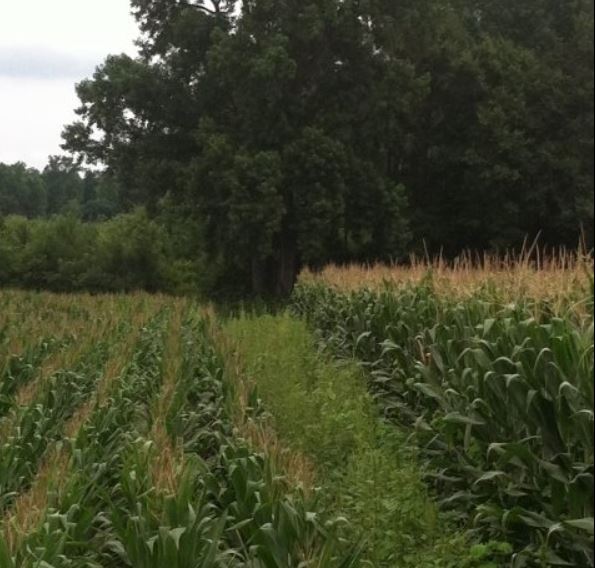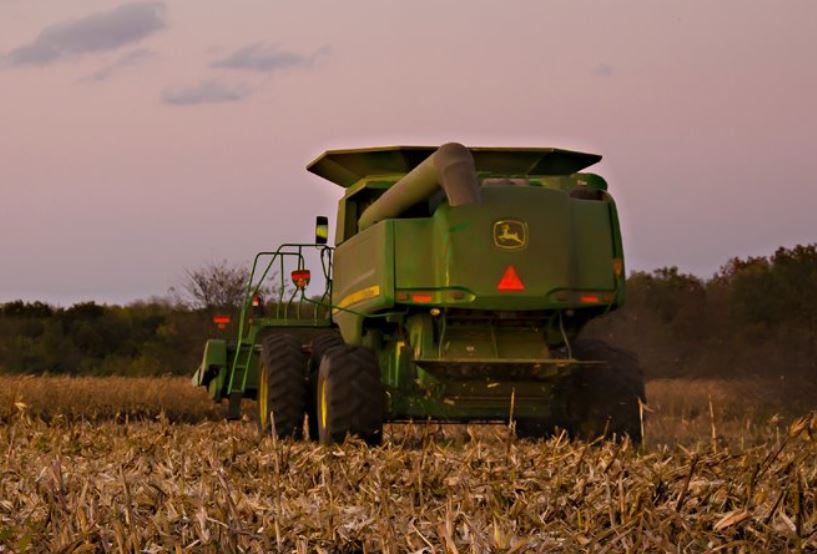Why Farm Loans Might Be a Good Move for You
You’re probably familiar with the “out of sight, out of mind” phrase, right? Sadly, it’s very easy for many people in our increasingly urbanized world to forget that farming is still how we get our food and a great many other products and associated benefits today. But fortunately, there are many people who want to fill that increasing void and provide the things our world depends on. Maybe one of those people is you, the beginning farmer. If you’re interested in becoming a farmer, here are some resources on government farm loans to help you get started. Let’s be honest, it’s not cheap to be a farmer, and it’s even less so when you’re just getting started. But there are government programs and agricultural loans designed to help you get up and running as fast as possible, whether you’re interested in hobby farm financing or a full-blown farm operation.
The Realistic Costs of Farming
First, you should definitely ask yourself the hard question: are you absolutely sure you want to pursue this path? There are a great many obstacles with growing crops, managing animals, and running a business, and farming combines all three. Let’s say you’re a brand new farmer and are interested in buying a farm – you need literally everything to get started. Here are several of the largest costs involved in farming that farm loans might be able to help you with.
- The largest cost is buying the actual farm property and associated buildings. The cost will greatly depend on which state you’re in and what the surrounding region is like. Large farms with extensive buildings near suburban areas will be dramatically more expensive than smaller farms with little development in very rural settings. Generally, the less developed it is, the cheaper it will be – but that also means you will have to put that effort in to shape it into a productive business.
- Then there’s the associated equipment. Depending on what kind of crops you want to grow or products you want to sell, the equipment can change dramatically. At a bare minimum for almost any farm, you will need a truck, tractor, several different tractor implements, an ATV or side by side, a trailer, various power tools, and probably a dozen other things. That adds up very fast if you’re starting from scratch.
- You’ll need to buy various materials as well, including seed to plant, livestock to raise, new fencing and posts, fertilizer, or herbicide. With livestock, you’ll also need to have consistent feed and veterinarian help once in a while. With crops, you may have to buy special products to help address a soil deficiency or some other disease problems. You’ll definitely need to buy gasoline or diesel to keep everything running too.
- Whether you harvest row crops, grow organic vegetables, slaughter livestock, or produce specialty products, you’ll also have to pay to transport the products to market.
If you are inheriting a property, that removes a lot of the initial start-up costs, but the other maintenance costs will still be there. This is not stated to discourage you from being a farmer, but you do need to be realistic and informed about the substantial costs involved before you start looking into farm loans.
Government Farm Loans
Depending on your credit, you might find it hard to find a loan that will help cover the mortgage for farm property. Most people don’t realize it, but there is assistance out there if you want it. Consider other similar government programs, such as the Farmable Wetlands Program (FWP), that are designed to help you as a landowner. The U.S. Department of Agriculture (USDA) Farm Loan Programs are designed for farmers or ranchers who want to start or grow their farming businesses. The Farm Service Agency (FSA), an agency of the USDA, provides temporary loans for individuals who cannot get traditional commercial loans. Here are a few of the FSA’s different loan programs, and who and what they are specifically geared towards.
- Farm Ownership Loans – these farm mortgage loans are meant to help individuals purchase or enlarge a farm property, construct new buildings, or pay closing costs. It’s the first hurdle to starting a farming operation.
- Operating Loans – these are general purpose loans to cover almost anything for your farm, including livestock, feed, farm equipment, fuel, farm chemicals, insurance, family living expenses, improvements and repairs to buildings and fencing, and more. For example, if you want to make an upgrade to your existing farm by purchasing new equipment, there are USDA guaranteed farm loans that can help you do just that.
- Targeted Audience Loans – these farm loans are designed to assist specific demographics (e.g., racial minorities, women, youth, new farmers, etc.). Because they are so specific, they may be a very good fit for you in your situation or they may not.
- Specialty/Emergency Loans – these loans are designed to help existing farmers recover from production and physical losses due to drought, flooding, or other natural disasters.

Some of the above farm loans offer fixed interest rates so you know exactly how much you will pay in addition to the principal borrowed, while others are variable and adjust periodically. In order to receive an FSA farm loan, you will also need to prepare a business plan for your farm. The detailed plan should describe your mission and goals, current assets, future marketing efforts, product revenue, and income projections. The FSA has several templates you can use to prepare this plan, so don’t be intimidated by it.
Another Income Source from Farming
Although you will hopefully make a good income from harvesting row crops, selling livestock, or growing organic veggies, the reality is that sometimes things don’t pan out the way you hope. Some event or natural disaster could impact your bottom line, or maybe it is just taking a much longer time to pay off the farm loans on your hobby farm. In that case, there’s another way to earn passive income on your new farm that could make it more profitable and feasible.
Leasing your farmland for hunting purposes is a dual-purpose, “everybody wins” kind of deal. Someone without access to private land gets to hunt on your property (under strict lease agreements with rules you set), and you get additional income from their lease payments to help pay off your farm loan faster. In addition, you get better farm security since the lessee will be out monitoring your property for trespassing. Hunting is also one of the best ways to reduce crop damage from deer, which should help you earn more on your harvest.
If you’ve been debating about buying your first farm but weren’t sure how to financially go through with it, consider looking into these FSA loans for first time farmers. They can be exactly what you need to get started.
GET INFO ON LEASING YOUR LAND FOR HUNTING
[av_sidebar widget_area=’SRM-CAPTCHA-FORM’ av_uid=’av-2q9txt’]


You made a good point when you said that you will need to pay to transport the vegetables, and row crops. specialty products to the market. With this in mind, I will ask my father to consider applying for farm financing. He wants to grow crops and care for livestock, but I am afraid that he does not have enough budget for all his needs to run the farm well.